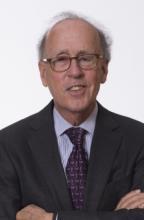The US role in the global financial system is changing – here’s how it could affect the world’s economy
The last-minute resolution of the US debt ceiling crisis recently has led to a collective sigh of relief in global financial markets. But the way it was resolved has renewed concerns about the the dominant role of the US in the world economy at a time of unprecedented challenges including low growth, high inflation and worries about the stability of the banking system.
There is a high degree of uncertainty about how these issues will play out. But the political paralysis in Washington, the rise of populism and a retreat from free trade means that the US may not have either the means or the will to deal with another global crisis as effectively as it once did.
As a BBC economics reporter during the 2008 global financial crisis, I saw first hand the dominant role the US played, both domestically and internationally, in resolving the situation. There is little evidence of the same commitment from the US today.
The US Federal Reserve Bank played a crucial role in 2008. It stabilised the global banking system by lending over US$1 trillion (£796 billion) to other central banks through so-called “swap lines”, which pumped money into the financial system.
This facilitated the bailout of the European banking system by lending much-needed dollars. This year, at the height of the banking crisis in March, the Fed intervened again to provide daily currency swaps to other central banks.
During the 2008 crisis, the US was also the driving force behind urging the major industrial countries to introduce expansionary policies to grow their economies in order to avoid a global recession.
It also enabled the International Monetary Fund (IMF) to make a further US$1 trillion available to stabilise the threat to the financial system and help emerging market and low-income countries. And the US took the lead, through the G20, in creating the global financial regulator, the Financial Stability Board (FSB), to ensure the stability of large global banks.
More recently, the world’s financial system has been shaken by another financial crisis, although it has been smaller in scope: the failure of several US regional banks and the rescue of Swiss bank Credit Suisse. The latter is one of only 30 global systemically important financial institutions identified by the FSB as likely to cause a financial crisis if they fail.
It is by no means clear that the latest banking crisis has run its course. There are concerns about the so-called shadow banking system, largely unregulated financial institutions that now make up half of all global financial assets. For example, in the US many people invest in money market funds, which pay higher interest than banks, but provide no deposit insurance.
Meanwhile, the international regulatory system created in 2008 has been either ineffective or weakened. Political pressures led the US to reduce regulation and capital requirements for its regional banks, during the Trump administration, while worries about their soundness remain. Internationally, geopolitical tensions within the G20, due to differences between emerging market countries and G7 countries on Ukraine, have furthered weakened the impact of FSB recommendations.
The future of US global economic influence
There are strong reasons to doubt whether the Fed would be willing or able to lead another large-scale 2008-style bank rescue. In the first place, in contrast to the relatively low inflation in 2008, the Fed is now facing conflicting pressures, having sharply raised interest rates to curb inflation.
This might surge again if the Fed is forced to cut rates to save banks which lent heavily during the recent period of low rates and are now seeing a rise in bad debts as rates rise and borrowers struggle to manage their repayments. For the same reason, the Fed would be reluctant to support a further expansion of the US economy, which could add to inflationary pressures.
Finally, the US’s ability to mount a major bank rescue, either domestically or internationally, is limited by the fact that the Fed still has a huge balance sheet overhang remaining from the 2008 rescue, which it is trying to reduce by US$30 billion, and soon US$60 billion, per month. And the Fed’s authority to issue swaps to other central banks could also be challenged by politicians who might question the need to help the US’s economic rivals.
The twin threats of inflation and slow growth have not yet been tamed, either in Europe or the US. This calls the credibility of central banks – which is key to their ability to manage the economy – into question as never before.
Meanwhile, the value of financial assets that underpin the global financial system, particularly US Treasury bonds, have seen dramatic fluctuations due to the banking and debt ceiling crisis, as well as concerns about the huge size of fast-rising US government debt.
Recent attempts by right-wing House Republicans to block the passage of some spending bills could ultimately lead to a government shutdown. This would further weaken the US government’s credit rating.
All of this has put unprecedented pressure on the stability of the banks around the world. The growing tensions within the globalised financial system, coupled with a weakened US in retreat from its global role, could spell danger for world economy.
Steve Schifferes, Honorary Research Fellow, City Political Economy Research Centre, City, University of London
This article is republished from The Conversation under a Creative Commons license. Read the original article.



















